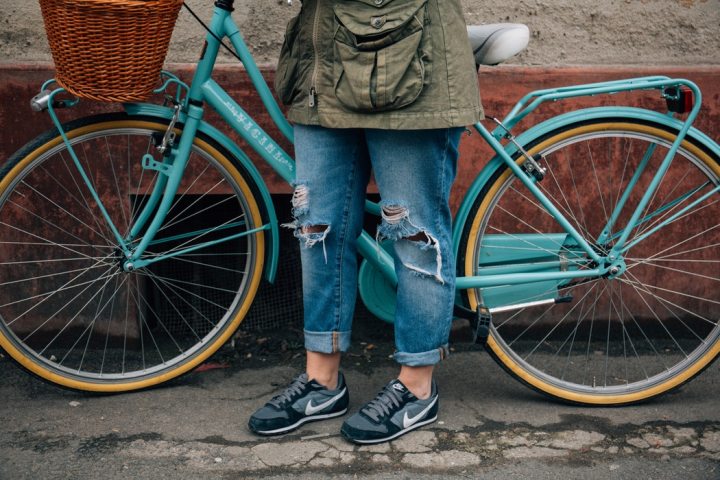 Charles Duhigg’s ‘The Power of Habit’is an eye-opening read. It heightens the awareness about our personal good or bad habits, and also highlights how brands use the power of habit to sell their products and build empires.
Charles Duhigg’s ‘The Power of Habit’is an eye-opening read. It heightens the awareness about our personal good or bad habits, and also highlights how brands use the power of habit to sell their products and build empires.
However, the fact remains that habits not just influence individuals and organisations, but also impact the society. Take for example, the habit of commuting in a certain way.
After months of research, we identified three types of commuters and their commuting habits. Read closely and you might find yourself in one of the archetypes.
Mr. Mohan Dwivedi | Retired government officer
Dwivedi Sa’ab, as his current neighbours and former colleagues address him, is a retired government officer residing in Dadar. His usual day begins with a morning walk at 5. Dwivedi Sa’ab, in this slow-mophase of his life, has all the time in the world. As a result, despite having a car at home, he likes to walk to the market and to the park and to the dispensary and to the post office. He doesn’t have much of a social life, however, he visits his daughter over weekends and on occasions like Diwali, Holi, Dussera. On those days too, he ditches the car, walks to the bus stop and likes to take a bus. It’s been a habit of many years; in fact he used to go to office in a double-decker bus too. This mode of travelling often delays him and always makes him the butt of jokes and slight irritation. His daughter snaps, “Papa, why wouldn’t you ask me for my driver, he could drive you here. The car is just sitting pretty enjoying floral showers in different seasons. Plus, you are so old, we also worry when you take the public transport.”Dwivedi Sa’ab always has the same refrain. He says, “Beta, it’s too late to change his habit.” Deep down he knows he can’t cope up either – be it commuting apps or the sedentary lifestyle. Sometimes, he also jokes about the buses being empty and that he feels like a king being driven around in a 30 Lacks bus, with only a few passengers for company.
This ‘bus’ habit saves him the trouble of using the apps and also keeps him active. Dwivedi Sa’ab’s personal habit is not just good for his health, but is great for the health of the environment too.
Alisha Deb | Student & Dancer
Alisha is pursuing her Bachelor’s in Business Management, and is a dancer by passion. Her usual week is something like this – five days in college and dance class, thrice a week. A resident of Versova, her college is in Vile Parle and dance class in Khar. Alisha is also a product of a more environmentally aware generation plus too young to have a steady, fat paycheck. Hence, she rides a bicycle from home to college, college to dance class, dance class to home. She began this form of commute right after school. Being part of cyclists’ group in the neighbourhood has exposed her to the joys and benefits of cycling. Now, cycling to nearby places has become a habit.
Alisha also wears a helmet and who knows, she may even cycle to work in a few years. This form of commute keeps two things fit – her pocket and the planet. The toxic fumes in the environment sometimes leads Alisha to cough – to combat that, she been planning to buy a pollution mask. Other than that, the eternal optimist has she has no complain being on the road on a cycle – she has, in fact, mastered the art of staying safe in the city’s zig-zag traffic.
Rohan Shastri | Mid-level corporate
Rohan works as an Accounts Management person in an ad-agency. In his mid-thirties, as a middle level manager. He drives to work everyday, he drives to parties every Friday, and he drives to meetings every alternate day. His office is in Goregaon and most of his clients are in Worli. Although, trains are a faster way to get to his destination, but just like the thought of going to the gym never crosses his mind – likewise, the thought of taking the train never occurs to him. Rohan earns enough and can even claim petrol, and so, he doesn’t even think twice before hopping on to his car. His work is so taxing that ceases to push himself even on weekends. Whether it’s to the farmers market or to the salon, Rohan prefers to zoom everywhere in his car.
Rohan has arrived in life and he has made it a habit to arrive everywhere in his car – and by the way, he doesn’t arrive alone. He arrives with pollution, with reduced carbon foot-print, and with blinders.
As you would have guessed by now, it’s pretty clear that economic ladder, convenience, flexibility, peer-pressure define which form of public transportation people use. And the so-called arrived in lifeare the ones who don’t even consider buses, trains and taxis, and as a result, pollute the environment.
As we wind up this piece, the question we leave you with is – does ‘making-it’ in life give anyone a license to ‘break-it’ when it comes to the environment?
Until next time!